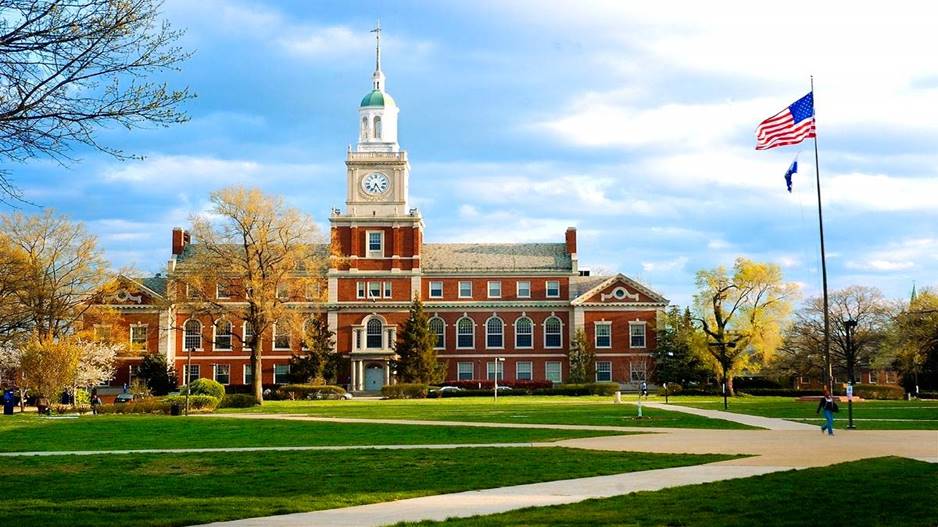The Source of Terrible Ideas, and Great Ones
Within the last several years, maybe before, ideology that developed in elite academic circles leaked into public affairs and is now driving forward life itself, ruining careers and lives and making inroads into the conduct of civil society itself. Andrew Sullivan, in an incredibly prescient piece, describes the ideology this way: “The core truth of our society is a system of interlocking and oppressive power structures based around immutable characteristics like race or sex or sexual orientation.”
What has this done?
The whole concept of an individual who exists apart from group identity is slipping from the discourse. The idea of individual merit — as opposed to various forms of unearned “privilege” — is increasingly suspect. The Enlightenment principles that formed the bedrock of the American experiment — untrammeled free speech, due process, individual (rather than group) rights — are now routinely understood as mere masks for “white male” power, code words for the oppression of women and nonwhites. Any differences in outcome for various groups must always be a function of “hate,” rather than a function of nature or choice or freedom or individual agency. And anyone who questions these assertions is obviously a white supremacist himself.
And of course the right has responded with a message that, yes indeed, white males are supreme and should rule all others. Biological Identity is the desideratum of life itself. Everything else is a phony and a fake, particularly commerce, which only provides ephemeral connections that are not as deep as blood and soil. This right-wing reactionary approach (never underestimate its power: it dominated the whole of Europe in the interwar years and is growing around the world today) essentially mirrors that of the left but with a different value judgment.
This is a nice summary of two movements that are seemingly at odds but actually agree on this core: the social justice warriors of the left and the nationalist identitarians of the right. They agree on the main point that immutable human characteristics embody the of life and that these traits constitute the only political drama that really matters. They have become warring tribes, uniting in their mutual loathing on liberalism, which is the view that society can manage itself in harmony provided it is left alone by governing authority.
These tribes seem to have near-total dominance of media, movies, and elite culture. It is a daily clash of mutual recrimination. Who is the biggest victim? Who has inordinate power and needs to be taken down? What group identity should emerge from the struggle on top? What freedoms should anyone really have at the end of the struggle? Truly the media has become unbearable because it mostly consists of struggles over this question as if this were the one and only narrative worth thinking about.
Incredibly, these groups don’t mention (with any consistency) the elephant in the room: the state itself. Here is the real source of oppression and exploitation of everyone regardless of sex, gender, race, religion, or ability. The state works to pit people against each other, as a way of distracting the public from the misdeeds of its tax, regulatory, and penal system. So long as we not looking at the real source of the problem head on, and are rather looking at each other in a dog-eat-dog struggle, society cannot improve.
In a free society, harmony can exist between people. This is the essential claim of liberalism and it has been proven correct by the unfolding of history for hundreds of years. Liberalism built the middle class, gave us our technology, created our cities, provided new job opportunities and means of thriving, emancipated slaves and serfs, recognized the rights of women, provided growing circles of access to capital, and resulted in longer and better lives. And yet we turn against it and embrace dangerous ideologies that threaten to undermine all these gains.
What’s fascinating to me is how these terrible ideas emerged from academia, which became a testing ground for identitarianism, thought control, safe spaces, and unending obsession with race, sex, and gender identity. Academia exists outside the normal matrix of exchange you find in any commercial district of any bustling city or farmers market in the country. Here you find that people get along just fine without extremist ideology. There are opportunities in the market for everyone to find value in everyone else without regards to these immutable characteristics.
How does an ideology that seeks control of the population come to replace the everyday experience of people in a commercial society? F.A. Hayek asked this question concerning the ideology of socialism. The socialists always claimed that their vision was a bottom-up movement built by workers and peasants. His remarkable essay is Intellectuals and Socialism.
“It is perhaps the most characteristic feature of the intellectual that he judges new ideas not by their specific merits but by the readiness with which they fit into his general conceptions,” Hayek writes. “It is through their influence on him and on his choice of opinions on particular issues that the power of ideas for good and evil grows in proportion to their generality, abstractness, and even vagueness.”
Such ideologies need not be tested by real-world usefulness because the intellectual doesn’t need to bother with such concerns in the conduct of his or her professional life. The intellectual then teaches the same to the students, who later find themselves frustrated at the inapplicability of what they learned to their careers. They turn not so much against the time they committed to school (they have degrees!) but the functioning of the world itself.
Hayek said that this is the origin of socialism and the driving force of its appeal in the 20th century. It was not a bottom-up ideology. How can it be? Socialism pledges to steal people’s property, religion, family relations, and liberty. It has never had public appeal apart from ideological delusion. So socialism came from and was brought about by members of the ruling class, not the workers and peasants. It is always about the elites controlling everyone else.
Some people have mistakenly interpreted Hayek to say that academia (the intellectuals) is always and everywhere the source of the ideas that are influential in society. I do not read him this way. His analysis applies specifically to socialism and other varieties of ideology that aspire to mold society in a certain direction.
It is absolutely not the case that all ideas influential in society come about like this. Consider the case of Bitcoin and blockchain technology. It was released in the world only nine years ago, not from academia, not from government, not from people with power. It was discussed and finally revealed on a decentralized listserv that was subscribed to by several hundred people around the world who were working on the problem of creating a digital form of cash for the internet. Almost inadvertently they discovered a new way to document ownership rights that massively improves on every system used for the last 100,000 years.
That is a transformative idea. It came from below. It is democratically available to all. Cryptocurrency is the opposite of identity politics. It cares nothing about race, gender, class, nationality, religion, or even ideology itself. It is available to anyone, even socialists of the left and right. It has no ambition to control society from the top down. Its creation and adoption has been entirely bottom-up. And it is changing the world in a good way.
The parable of top-down socialism vs. bottom-up Bitcoin tempts one to adopt a general theory of the relationship between ideas and social change. It might be the case that bad ideas come from the top down and good ideas from the bottom-up, as a general expectation and principle. That seems to cover most use cases, until the point comes when liberal intellectuals become hugely influential in academia. We’ll wait a long time for that to be the case.
Maybe the shift will take a student revolt. Oddly, that seems to be brewing as ever more students are demanding classes in blockchain technology and universities are complying. All to the good. They should get something for their money. Maybe someday, a degree can again become valuable in the commercial market economy again.











